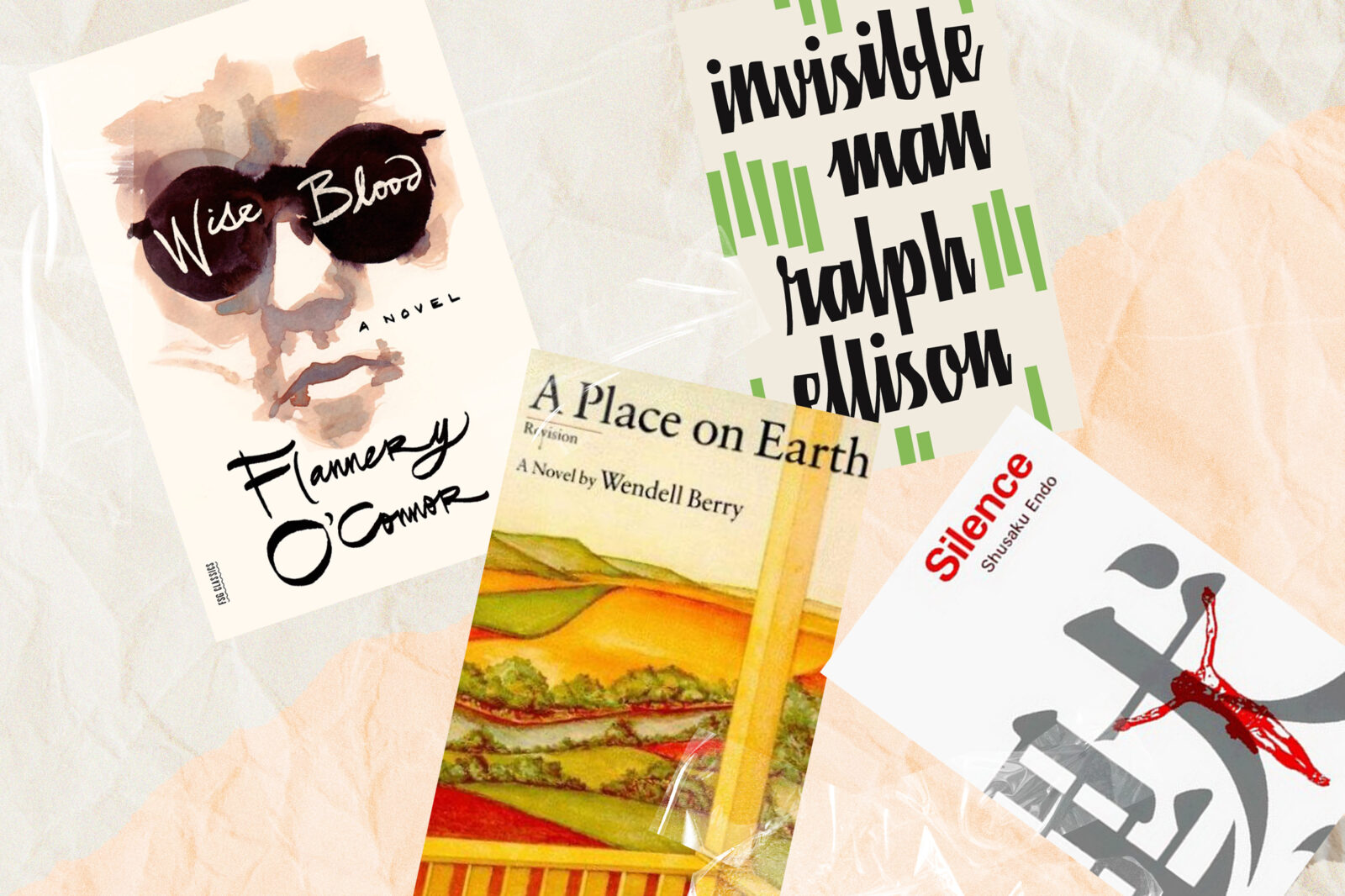Silence by Shusaku Endo
Silence is one of the most formative and the most harrowing novels I have ever read. Tracing the historical story of underground Christians in Japan in the mid-17th century, Endo offers a stark look at the realities of following Christ under persecution, and the intense psychological struggle of a particular priest to know whether it would be better for him to be martyred for his faith or to recant.
Wise Blood by Flannery O’Connor
Haze Motes, the central character in Wise Blood, sets out to be a preacher of anti-religion and yet in spite of himself, Motes seems to be moving on a circuitous journey toward redemption. Although Wise Blood is chock full of the sort of “large and startling figures” that O’Connor relished, there is a sense in which Motes’s journey hits the reader a little too close to home, challenging our sensibilities about who God is and how God is at work in our lives.
The Brothers Karamazov by Fyodor Dostoevsky
In what is perhaps the quintessential Russian novel, and one of the most philosophical novels of the modern age, The Brothers Karamazov wrestles with vital questions about God’s existence and the nature of God’s character. These questions are ones that we all must face eventually and Dostoevsky is a brilliant guide through this theological obstacle course.
A Place on Earth by Wendell Berry
The great gift of Wendell Berry’s fiction is that, in our overwhelmingly individualistic age, it shows us what it looks like to belong to a diverse, intergenerational community that is interwoven with its place. I could have chosen many of Berry’s novels, but A Place on Earth perhaps gives the richest depiction of community in the fictional world of Port William. For those who have ears to hear, A Place on Earth offers a compelling vision of what the local church could be, in all its broken glory.
The Last Temptation of Christ by Nikos Kazantzakis
Although Martin Scorsese’s film adaptation of this novel in the 1980s drew the full brunt of scorn from the evangelical community, who were scandalized at the idea that Jesus was actually tempted, the basic story is a stunningly-written and imaginative exploration of the idea of that Jesus was “tempted in every way, just as we are—yet he did not sin.” (Hebrews 4:15). This novel is essential to a robust understanding of who Jesus is, in all his humanity and deity.
The Poisonwood Bible by Barbara Kingsolver
If The Last Temptation of Christ calls us to a deeper Christology and A Place on Earth to a deeper ecclesiology, The Poisonwood Bible compels us toward a deeper missiology, a fuller understanding of what it means to proclaim the good news of Jesus throughout the whole earth. Particularly, this novel looks at the brokenness of a missionary family amidst the broken systems of post-colonial Africa. As we take the Gospel to foreign peoples, Kingsolver helps us consider the nature of the Gospel we proclaim and how much of it is bound up with the Western culture that has formed us.
Gilead (Home and Lila) by Marilynne Robinson
Told through the voice of a dying minister in rural Iowa, Gilead is a love song of sorts offered in gratitude for the wonder and beauty of life. And if that isn’t recommendation enough, Gilead and the two novels that follow in its footsteps, offer a vibrant, realistic picture of faith unfolding over decades amidst a community of people in a particular place.
My Name is Asher Lev by Chaim Potok
Set amidst a deeply religious community of Hasidic Jews in Brooklyn, Potok’s novel challenges us to consider the nature of vocation, and the tensions that exist between an individual’s calling and his or her commitment to a particular faith community. As Asher Lev’s vocation is rooted in the visual arts, this novel is also delightful meditation on the intersection of art, faith and community.
Invisible Man by Ralph Ellison
What does it feel like to be invisible? As one friend reminded me recently, one of the gifts of Ellison’s novel is that it teaches us empathy. By taking us inside the experience of one who is invisible to mainstream society, Ellison challenges us to be attentive to those who are invisible in our own congregations and neighborhoods, listening to their stories and gaining a window – however tiny—into their experience.
A Wrinkle in Time by Madeleine L’Engle
Although generally categorized as a novel for young readers, this Newbery award-winner and science fiction classic, grapple with adult-sized questions about the nature of God and the existence of evil. L’Engle challenges us to imagine a God that is bigger, the creator and sustainer of a universe that, as modern science is revealing to us, is much more mysterious and complex than we generally suppose.
Life After God by Douglas Coupland
A follow-up to Coupland’s seminal novel Generation X, this collection of stories explores the realities of living in a world that has abandoned God. Coupland ends up pushing back ever so gently on the idea that we can or should try to live without God. Read in conjunction with Coupland’s other novels, Life After God is a compelling reflection on what it means to think and live theologically in our age in which culture is rapidly unraveling.
Thin Blue Smoke by Doug Worgul
With bold and twisted characters like those of Flannery O’Connor or Frederick Buechner, Worgul weaves a rich and redemptive story that captures the spirit of its gritty, urban setting as well as any American novel that is deeply rooted in a place. In our world of increasing isolation and infidelity, Thin Blue Smoke stirs our imaginations with the hope of the reconciliation that is possible through deep and tenacious friendships.
Thanks to John Pattison, Todd Edmondson and Kester Smith for their input in curating this list. This list was first published in 2019.























